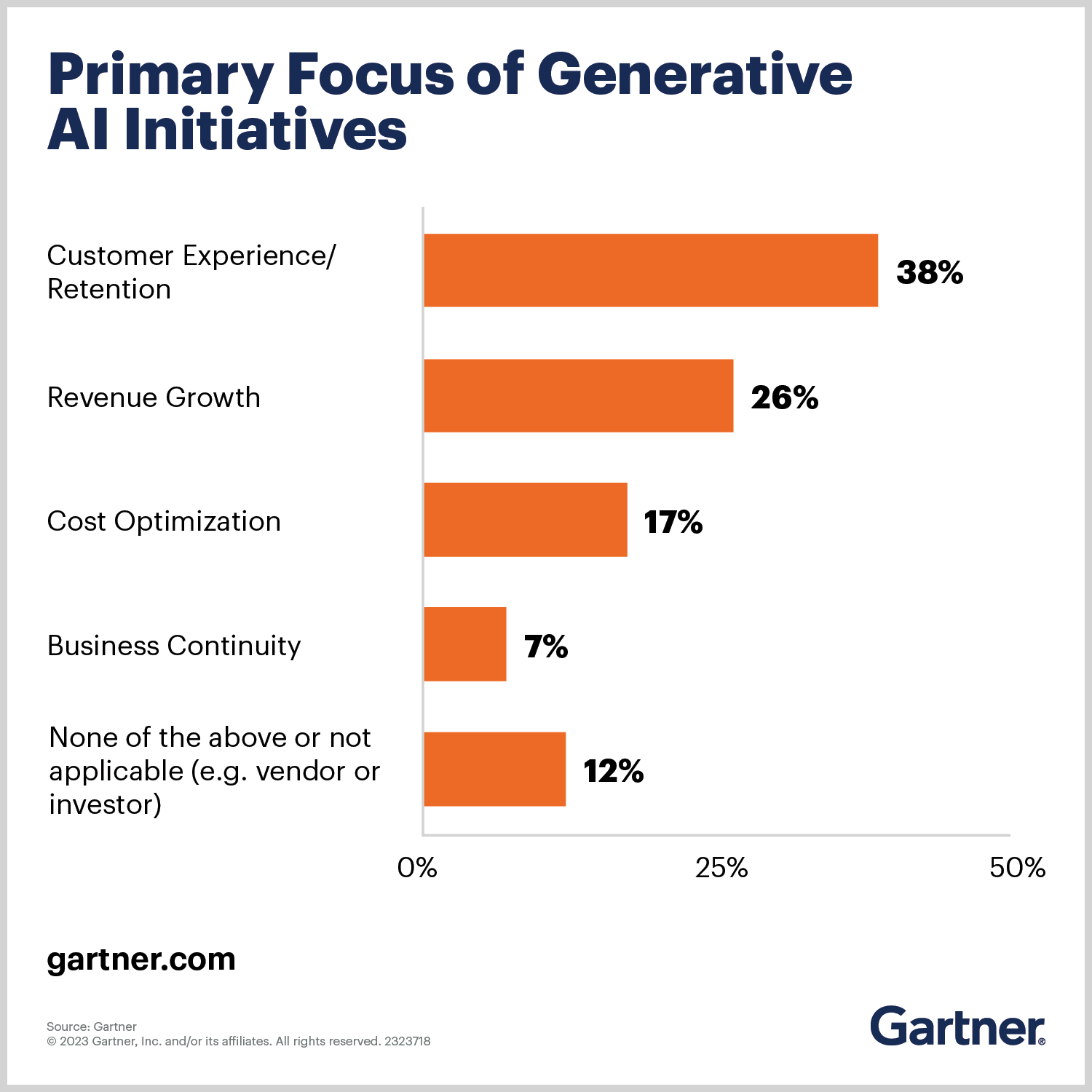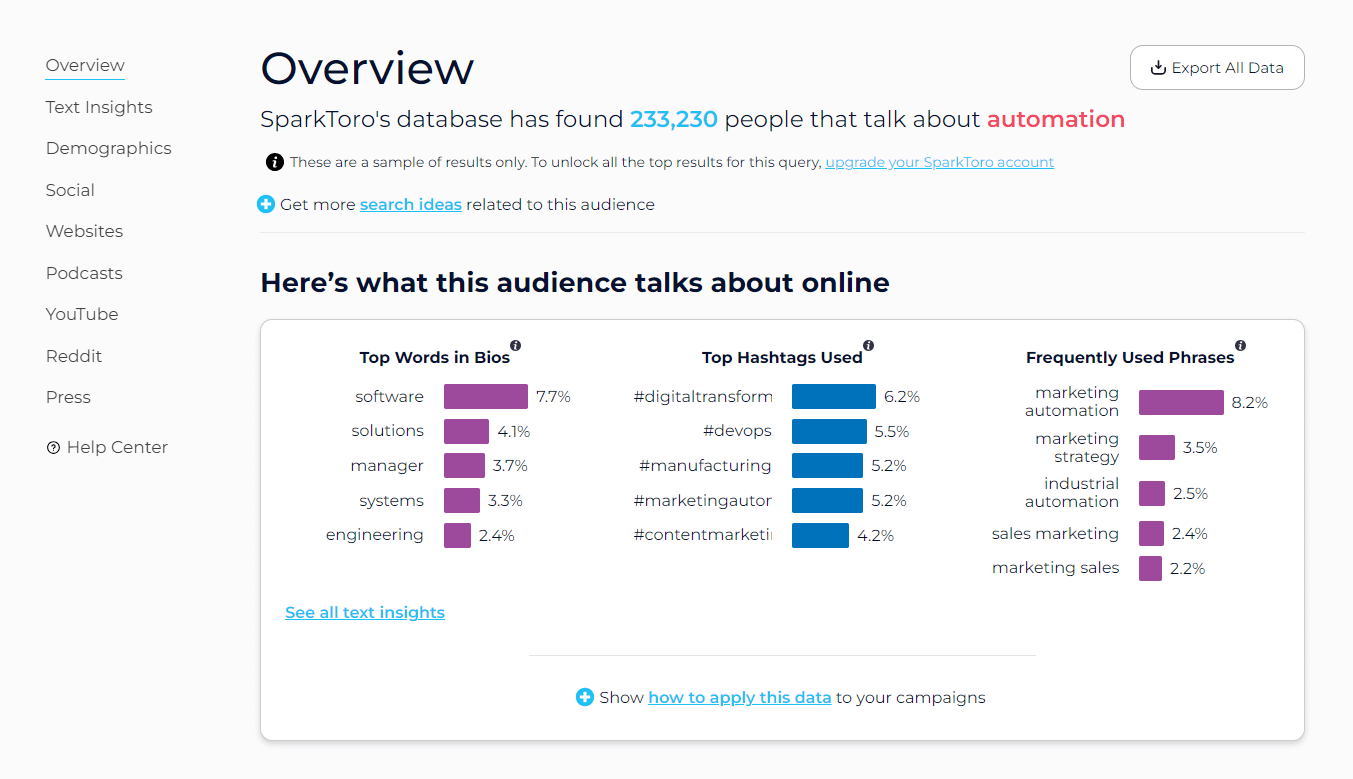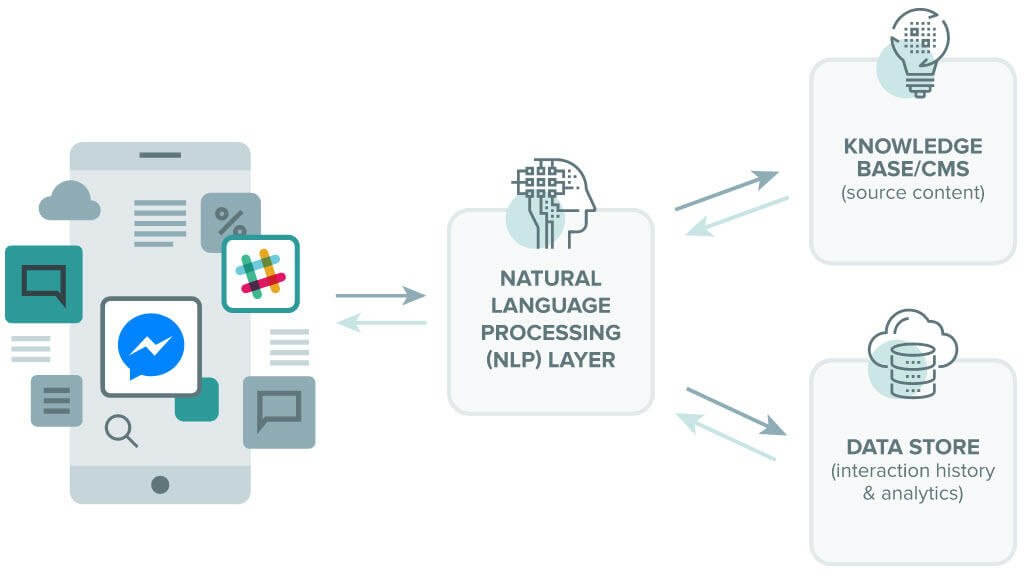The advent of artificial intelligence (AI) has ushered in a new era of technological advancements, with generative AI standing at the forefront of this revolution. By delving into various applications of generative AI in business, from data analysis to customer support, product design, and cybersecurity, we’ll explore how it’s reshaping the way companies operate.
What Is Generative AI?
Generative AI refers to a category of artificial intelligence that specialises in creating new content, whether it be text, images, or even code, based on the data it’s trained on. This technology leverages machine learning models, particularly those based on neural networks, to analyse and learn from vast datasets, subsequently generating new outputs that can mimic the original data in a realistic and often innovative way.
The evolution of generative AI has been rapid and impressive, owing much to advancements in machine learning algorithms and the exponential increase in computing power. Its applications span a broad spectrum, from generating realistic images and writing coherent texts to composing music and developing new medicinal formulas. In the business context, generative AI is not just about automating tasks; it’s about enhancing creativity, decision-making, and operational efficiency.
What Is Generative AI Used For In Business?
Generative AI is revolutionising business operations by offering innovative solutions across various domains. Its ability to generate new content, insights, and solutions has made it an invaluable asset in the business world. Large businesses incorporate generative AI to nurture customer relations, grow revenues and optimise their spending due to its sophisticated systems.
Generative AI is not just a tool for automation; it’s a catalyst for innovation and efficiency in business operations. Its ability to learn, adapt, and generate novel solutions makes it an indispensable asset for businesses looking to stay competitive in a rapidly evolving digital landscape. Its true strength lies in its adaptability to various industry-specific needs.
In healthcare, AI is used for personalised medicine and discovery. It analyses medical data to identify potential treatments and tailors healthcare plans to individual patient needs. The finance sector employs AI for fraud detection and algorithmic trading. AI algorithms can identify patterns indicative of fraudulent activity and make rapid, data-driven decisions in stock trading.
In retail, AI enhances customer experience through personalised recommendations and inventory management, ensuring optimal stock levels and tailored product offerings. In manufacturing, AI optimizes production processes, predicts maintenance needs, and enhances quality control, leading to increased efficiency and reduced operational costs.
These examples illustrate how generative AI provides tailored solutions across industries, driving innovation and efficiency in sector-specific applications.
Data Sourcing and Insights
The integration of generative AI into data sourcing and analysis has revolutionised how businesses gather insights and make informed decisions. This technology has enabled more efficient and effective processing of vast data sets, uncovering valuable insights that were previously inaccessible.
Generative AI excels in interpreting complex data patterns. By leveraging advanced algorithms, it can predict outcomes through predictive analysis, identify trends, provide personalised customer data and offer strategic insights that drive business growth. For instance, AI can analyse market trends to predict future consumer behaviour, enabling businesses to strategise proactively.
Another significant advantage is real-time data processing. Generative AI can analyse data as it’s being collected and provide instant insights. This capability is invaluable in scenarios where swift decision-making is crucial, such as financial trading or emergency response management.
Supportive Programming and Design for Products
Generative AI significantly accelerates the product design process. It can quickly generate multiple design options based on set parameters, allowing designers to explore a wider range of possibilities in a shorter time. For instance, AI can generate various models of a product, each optimised for different criteria like cost, durability, or aesthetic appeal.
AI-driven design tools foster creativity and innovation. By suggesting novel combinations and ideas, AI pushes the boundaries of traditional design, leading to more innovative products. These tools can blend elements from different designs to create something entirely new, offering unique solutions that might not have been considered by human designers.
AI also streamlines the prototyping and testing phases with data-driven design decisions. It can simulate how a product will perform under various conditions, reducing the need for physical prototypes. By analysing market data, customer feedback, and performance metrics, AI can guide the design process towards the prototype stage to production that is more likely to succeed in the market.
Client Support and User Satisfaction
Generative AI enables businesses to offer highly personalised customer interactions. By analysing previous customer data and interactions, AI can tailor conversations and responses to meet individual customer needs. This personalisation makes customers feel valued and understood, leading to higher satisfaction rates.
AI-powered chatbots and virtual assistants have revolutionised response systems. They provide instant responses to customer inquiries, reducing wait times and improving overall customer experience. These AI systems can handle a high volume of queries simultaneously, ensuring efficient and effective customer service.
Generative AI systems continuously learn and improve from each interaction. They adapt to new queries, refine their responses, and become more efficient over time. This ability to learn ensures that the quality of customer support keeps improving, further enhancing user satisfaction.
Streamline and Optimisation
Generative AI is significantly enhancing the efficiency of business operations by streamlining processes and optimising performance. This technology is instrumental in refining workflows and maximising productivity. AI algorithms are adept at identifying inefficiencies in business processes and suggesting improvements. For example, in manufacturing, AI can optimise production schedules and supply chain logistics, reducing downtime and costs.
Generative AI automates repetitive tasks, freeing human resources for more strategic activities. This automation spans various domains, from administrative tasks to customer service, significantly improving operational efficiency. AI assists in optimal resource allocation, ensuring that resources are used efficiently. By analysing past performance data, AI can predict future resource requirements, enabling better planning and management.
Creative Content Generation
One of the most notable applications of generative AI in content generation is its ability to automate the creation of written content. AI-powered tools can generate articles, reports, and even creative stories, significantly reducing the time and effort involved in the content creation process.
This automation is particularly beneficial for businesses needing to produce large volumes of content regularly, including multilingual content production, breaking language barriers in global marketing, plus maintaining brand voice consistency across various content pieces. Generative AI can be trained to understand and replicate a brand’s tone and style, ensuring consistency across all content outputs.
Cyber Defence Management
Generative AI is playing an increasingly crucial role in cyber defence management, enhancing the security posture of businesses in the face of evolving cyber threats. This technology is significant in identifying, mitigating, and preventing security breaches. Its ability to learn from historical data, analyse patterns in network traffic and detect sudden anomalies enables it to recognise new and sophisticated threats more effectively than traditional systems
AI can simulate various cyber attack scenarios, helping organisations strengthen their defences. These simulations provide valuable insights into potential vulnerabilities and the effectiveness of existing security measures. Generative AI can automate responses to detected threats, enabling quicker mitigation and reducing the window of opportunity for attackers. This automation is essential for addressing threats that require immediate action.
What Are The Challenges Facing Business Using Generative AI?
While generative AI offers numerous benefits to businesses, it also presents several challenges that need careful management. Understanding these challenges is crucial for businesses to effectively integrate and leverage AI technologies.
Governance and Regulations
One of the primary challenges is navigating the complex landscape of governance and regulations surrounding AI. As AI technology evolves, so do the legal and ethical considerations. Businesses must ensure compliance with data privacy laws, intellectual property rights, and ethical guidelines, which can vary significantly across different regions and industries.
Cybersecurity Risks
The integration of AI systems introduces new cybersecurity risks. AI systems can be targets for cyberattacks, and if compromised, can lead to significant data breaches. Ensuring the security of AI systems is paramount, requiring ongoing vigilance and sophisticated cybersecurity measures.
Data Transparency and Bias Results
Another challenge is ensuring data transparency and managing biases in AI algorithms. AI systems are only as good as the data they are trained on. If the training data is biased, the AI’s outputs will also be biased, potentially leading to unfair or unethical outcomes. Businesses need to ensure their AI systems are trained on diverse, representative datasets and are regularly audited for biases.
Ethical Use and Human Dependency
Lastly, there’s the challenge of human manipulation and over-reliance on AI. While AI can significantly enhance business operations, over-reliance can lead to a lack of critical human oversight. Additionally, there’s a risk of AI being manipulated for unethical purposes. Establishing checks and balances to maintain human oversight and ethical use of AI is crucial.
What Are The Most Popular Generative AI Tools?
In the dynamic landscape of generative AI, several tools have emerged as front-runners, each offering unique capabilities and applications in various business contexts. Here’s an overview of some of the most popular generative AI tools where each offer unique solutions to enhance efficiency, creativity, and innovation across various domains:
- ChatGPT: Developed by OpenAI, ChatGPT is a state-of-the-art language model known for its ability to generate human-like text. It’s widely used in customer service for automated responses, content creation, and even for programming assistance. Its versatility and advanced natural language processing capabilities make it a valuable asset for businesses looking to enhance their digital interactions.
- Bard: Developed by Google, Bard is a generative AI tool that is known for its high capability in content generation and data analysis. It helps businesses automate the creation of reports, articles, and even marketing content, saving time and resources while maintaining a high level of quality and creativity in written content.
- Synthesia: Synthesia stands out for its video generation and editing capabilities. It enables businesses to create professional-looking videos using AI, which is particularly useful for marketing, training, and educational content. Synthesia’s ability to generate realistic video content quickly and cost-effectively makes it a go-to tool for visual content creation.
- AlphaCode: Developed by DeepMind, AlphaCode is designed for coding and programming tasks. It excels in automating coding processes, debugging, and even developing new algorithms. Its application is particularly significant in the field of software development, where it can enhance efficiency and innovation.
- GitHub Copilot: GitHub Copilot, powered by OpenAI, assists programmers by suggesting code and snippets in real time. It’s like having a virtual coding assistant that helps speed up the development process and can improve coding quality. Copilot’s integration into the GitHub platform makes it a convenient and powerful tool for developers.
Final Takeaways
The exploration of generative AI in business reveals a landscape rich with opportunities and challenges. From enhancing data analysis and customer engagement to revolutionising product design and content creation, generative AI is a driving force in business innovation. Generative AI tools exemplify the diverse applications of this technology, each bringing unique strengths to various business functions.
As we look to the future, the potential of generative AI in business is boundless. Its continued evolution promises even more sophisticated applications, potentially reshaping industries in ways we have yet to fully comprehend. For businesses, staying abreast of these advancements and ethically leveraging AI’s capabilities will be key to gaining a competitive edge and driving future success.




